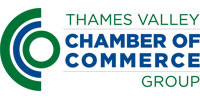This checklist is designed to help you write your research brief - you can customise it to suit your own requirements
Background: About yourself
A brief introduction to your company will help the agencies understand you and your individual needs. Background could include:
- what you do, your industry sector and how you fit into it;
- how long you've been in business;
- how many employees/sites you have;
- your business aims/aspirations.
Research objectives: What do you want from the research?
There may be separate research objectives and business objectives. For example, the research objective may be to find out what your customers think of the service you provide. Driving that may be a more strategic business objective - for example, does the research support modifying a service or product? Remember, agencies must treat anything you tell them as confidential.
Objectives could include:
- context for the decision to commission research;
- who in the company is involved in the research;
- research objectives;
- business objectives.
Target audience: Who do you want the agency to talk to?
Identify your target audience (respondents). Are they businesses or consumers? Are they current customers, lapsed customers or those of a competitor? Are demographics relevant, such as age, gender, income, occupation, location, company size, etc? Target audience could include:
- who you want researched and how many interviews (sample size) - you may want different options, or for the agency to make recommendations;
- contact details: can you provide a customer list, or should the agency find respondents themselves?
Research approach: What methodology do you envisage?
Do you think your objectives would best be met through qualitative or quantitative research or, perhaps, a combination? Should the research be conducted face-to-face, by phone or online? But don't worry if you're not sure. Approach could include:
- your preferred methodology;
- a request to agencies to recommend an approach and explain their recommendation.
Timescale: When do you need the findings by?
Consider internal milestones such as meetings and decision-making deadlines. Timescale could include:
- a timescale for the procurement process, the start of the research and when you want the findings;
- whether you want to receive draft or top-line findings in advance of the main findings.
Deliverables: What research findings do you expect the agency to give you?
Do you want the findings in a written report format or as a presentation? You may want to have both, or to have a meeting with your agency to discuss the findings. Deliverables could include:
- your preferred format for the findings - for example, a report in Word or a presentation in PowerPoint, hard copy and/or electronic, etc;
- anything else you expect the agency to provide.
Research budget: How much money do you have to spend?
It can help to give agencies guidance on the available budget, even if it is only a ball-park figure. They can then help you maximise your available budget and perhaps advise on an approach you had not considered. Budget could include:
- an indication of available budget (including whether or not this includes VAT);
- your preferred invoicing schedule.
Contact details: How should the agency get in touch with you?
Provide names and contact details for the key contacts for the bid, and request the same from them. Also spell out:
- who agencies should contact if they have any queries regarding the brief;
- who they should send their bid to, when by and how (eg electronically or hard copy).
Good luck!
Written by Rob Sheldon of Accent.
